Meet the students striving to end Public Sexual Harassment in Notts
They want institutions to take action
TW: Mentions of sexual assault
Public Sexual Harassment, or PSH, refers to unwanted sexual attention in public spaces, such as catcalling, groping and up skirting, which makes victims often feel unsafe and degraded.
According to polls conducted by Our Streets Now, a fifth of young girls between the ages of 14-19 will have been catcalled, followed, groped, flashed or up-skirted during the spring lockdown. Combatting this is therefore very critical.
We spoke to third year English UoN student Emily Garton – one of the four Nottingham Ambassadors for Our Streets Now – about their campaign to end Public Sexual Harassment and how they aim to continue to make progress this year. Here’s what we learnt:
Our Streets Now strives to end Public Sexual Harassment through cultural and legislative change
Our Streets Now is a movement to end Public Sexual Harassment in the UK through cultural and legislative change.
“On 22nd February 2021, we launched ‘Our Schools Now: Higher Education’, a campaign to raise awareness of the prevalence and impact of PSH on higher education students, and demand action from institutions,” Emily said.

Via @ourstreetsnow on Instagram, graphics by @sravya_attaluri
Our Streets Now want the male student body to become allies
When asked about Our Streets Now’s priorities, Emily stated that they were: “To promote awareness of the experiences of women and non binary students facing PSH.
“To provide safe and clear support networks for students who experience PSH.
“To establish a clear and consistent zero tolerance policy in Higher Education institutions.
“To educate the male student body to become uplifting allies, active bystanders and vocal denouncers of PSH.
“And to encourage the institution to monitor reports of PSH off campus and develop strategies to tackle it, for example working with transport providers to reduce harassment on university buses.”

In 2020, Our Streets Now found that 84 percent of students had experienced PSH
Emily said: “PSH is the most common form of violence against women and girls, yet it is belittled, ignored and normalised. We want students to know that this is not ‘normal’, they do not deserve to be treated like this and they are not alone. As one UoN student said, ‘we have been taught to expect and accept it, that is not okay’.
“We started experiencing PSH long before we came to Uni and for many students, this is the reality we have grown up with. Many will have been told, like us, to ‘take it as a compliment’ or that ‘it’s not a big deal’ but we want you to know that public sexual harassment is not a compliment, compliments do not make you feel afraid. To those who haven’t experienced it, it may not seem like a big deal, but thousands of testimonies reveal the many ways that PSH restricts our daily lives and has damaging effects on our mental health. PSH is everywhere, we won’t rest until it’s nowhere.”
How did this start in Nottingham?
Emily said: “I launched the #StudentsNotObjects campaign at UoN in February 2021, and began collecting testimonies from students, with their experiences of PSH in Nottingham and ideas as to how we could tackle the issue here. I also sent an open letter to the University, with signatures that I collected during the launch week, asking them for their support. They responded to the letter and we have since been meeting regularly to work on it, largely informed by the testimonies that we have collected.”
The University of Nottingham has launched a Report and Support system
Emily says the response to the campaign has been amazing so far, from both staff and students.
“The University and SU have been willing to help and listen to us and over the summer we were involved in the PSH workshop and gender-based hate crime course which they have developed and have been delivering this term,” Emily said.
“We have also worked on a video in collaboration with the Uni to raise awareness for PSH in Nottingham and on campus, this is to help publicise the Report and Support system, and is based on the testimonies of UoN students. We also hope that our campaign has helped to open up conversations around the issues and raised awareness, especially amongst students who haven’t experienced PSH.”
Testimonies are fundamental to their campaign
“We are keen to continue making progress this year and now have a team of four ambassadors,” Emily said.
“Testimonies have been fundamental to our campaign so far so this year we are hoping to continue to share students’ experiences and work to tackle the problems which affect us most. You can find some of the testimonies on our Instagram page @ourstreetsnow_uon.”
More information on how to submit testimonies can be found on their instagram page and they are particularly interested in working more directly with sports teams this year as well as focusing on safety on nights out.
Claire Thompson, Associate Director for Student Welfare at UoN, said: “The university is committed to tackling the issue of public sexual harassment and has made this the focus of this term’s No Place for Hate Campaign. We have supported Emily and three other students to write, develop and produce a video on PSH, based on the student testimonies collected, and which is live on the No Place for Hate site.
“The video and insights from Emily’s campaign that she had permission to share have been used in bystander training and in courses we have developed relating to Public Sexual Harassment and Consent. Professor Louise Mullany has written a number of courses on PSH which will be used to educate and inform our community.
“No Place for Hate hosted a talk by Beyond Equality last Wednesday entitled ‘Working with men and boys on gender equality’ which explored these issues further.
“Report and Support replaced our previous reporting systems in June 2021. It enables students and staff to report any concerns relating to harassment and abuse either anonymously or via a named report. The system enables us to respond quickly to concerns and to provide information about reporting options and support. The platform also gathers anonymised data to help us provide statistics on reporting and identify patterns of reporting which can help inform campaigns and interventions.”
The University of Nottingham has started operating a Report and Support system, in which students can either speak to an advisor or anonymously report sexual harassment and incidents. In addition to this, they have launched campaigns to provide students with information about consent to challenge sexual violence in Nottingham. You can find more information on these campaigns here.









































